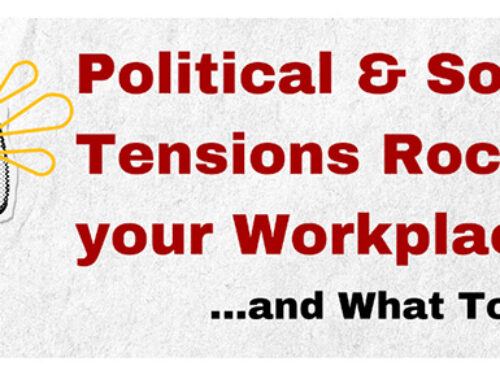

If you’re like most people, you’ll hold a door open for a stranger when entering or leaving a public space like an office building, coffee shop or retailer. And, if you’re like most people, you’ll say “excuse me” when you bump into someone in public. And, you’ll say “bless you” when someone sneezes.
These are all typical examples of what I call “Regular Respect.” Others call it “common courtesy,” or just plain old “being nice.” And most of us do these things unconsciously, without a second thought. Here’s the thing, regular respect is pretty easy to do, except when it’s not. This is because regular respect almost always stops when we feel disrespected.
Blame brain science. You see, when we’re disrespected by someone – such as calling us a dirty name, or cutting in line in front of us, or deliberately slamming a door in our face – our brain stem perceives their behavior as a threat to our person. Within a quarter of a second, the brain sends a Fight, Flight or Freeze signal to the rest of the body. Then, powerful hormones – such as Epinephrine (aka Adrenaline) – are secreted into our bodies by the adrenal gland, triggering an emotional reaction.
So, within the blink of an eye we are physically and emotionally “reacting” to the disrespect we’re experiencing, and at this point, treating others with regular respect becomes a low, low priority.
This is why you’ll see total strangers yelling at each other in a crowded store; or why drivers get caught up in their own “road rage.” And now that we have so many convenient ways of recording and broadcasting disrespectful behavior, it’s no wonder many of us think the whole world is less respectful than it used to be.
So, here’s something to do about it; practice regular respect consciously, as much as you possibly can. Be deliberately respectful of others, instead of just doing it without thinking. And thank others when they’re being respectful towards you. You’ll be amazed at how a little conscious regular respect can be infectious, and help everyone to have a better day.




